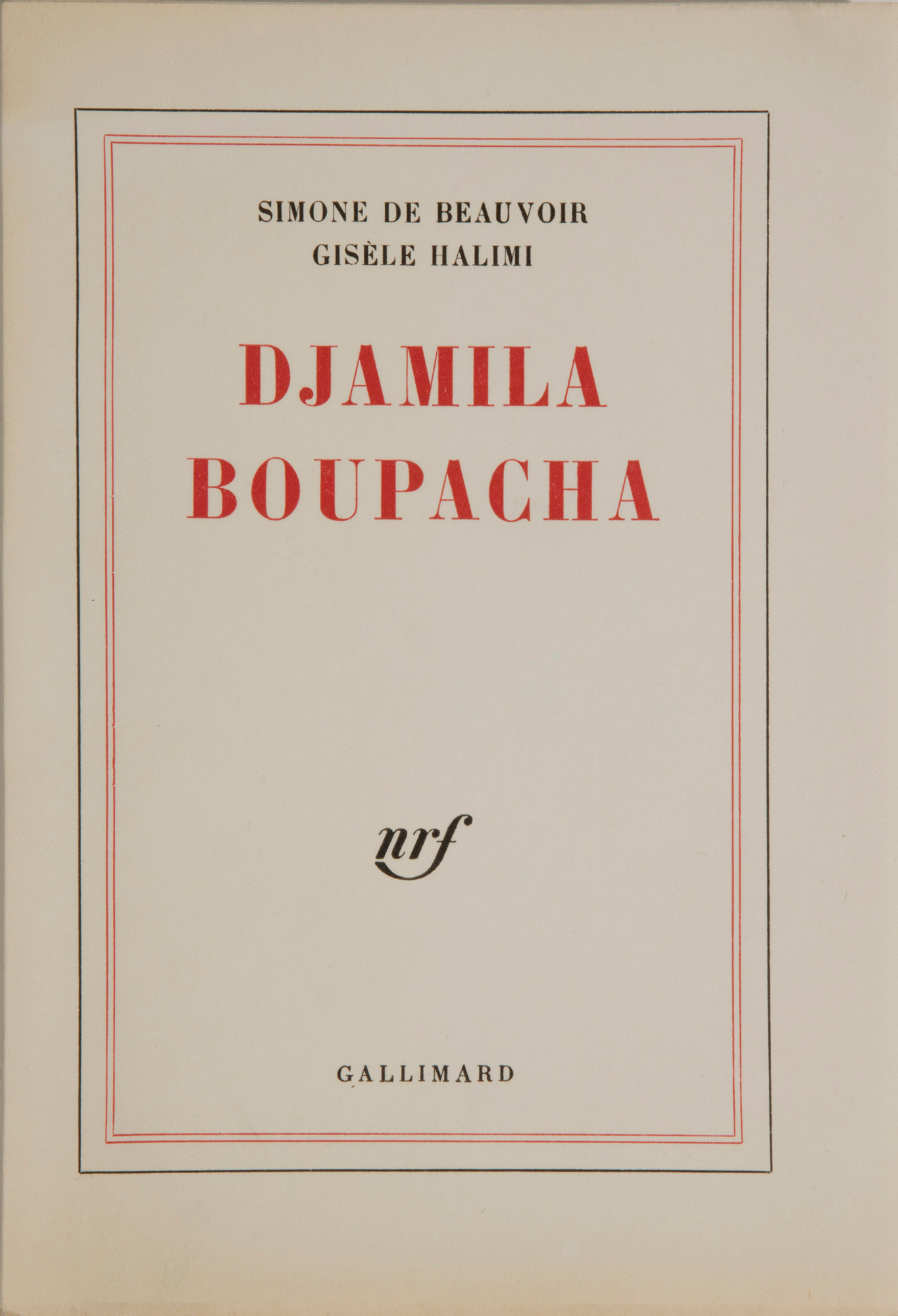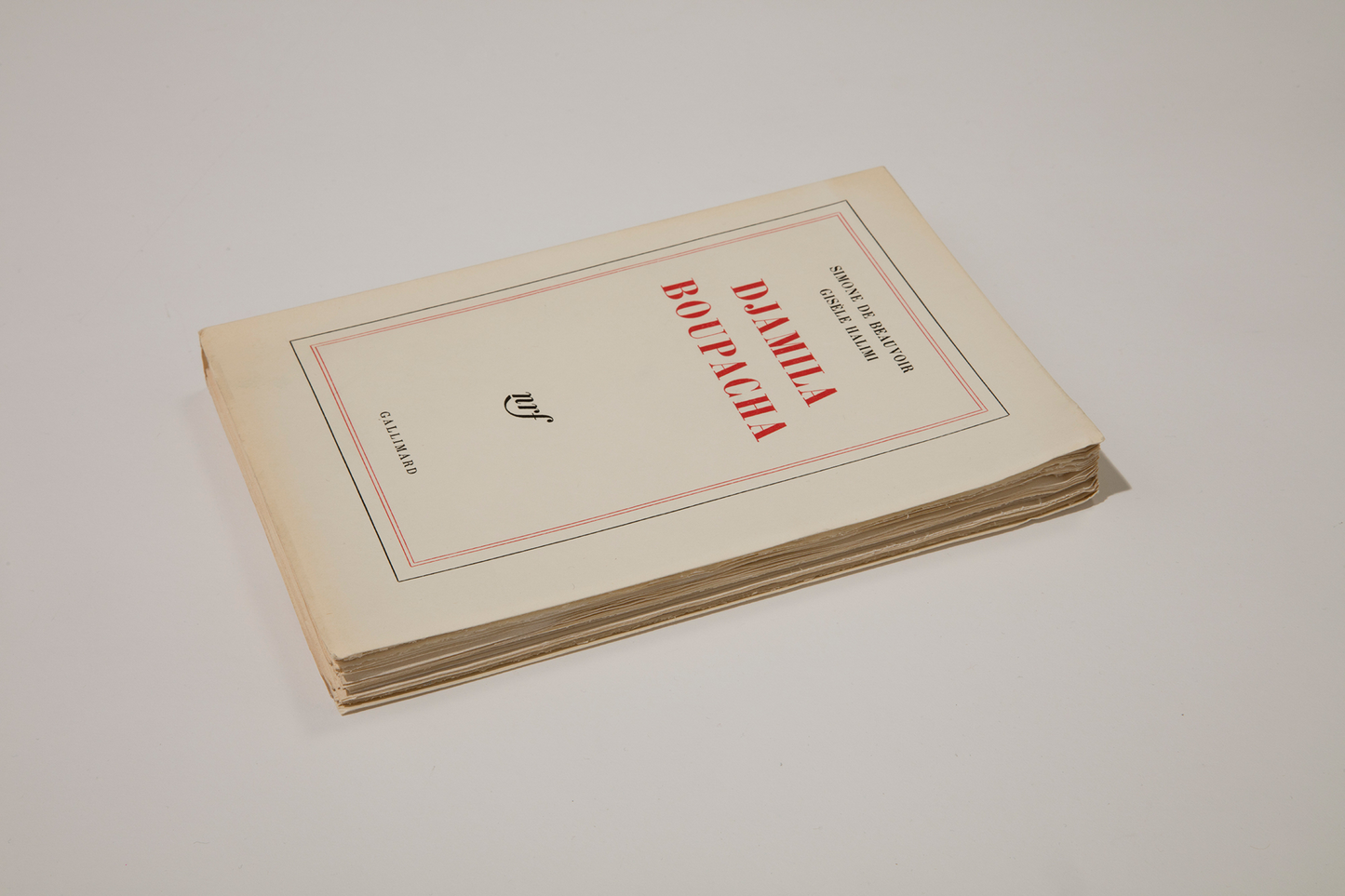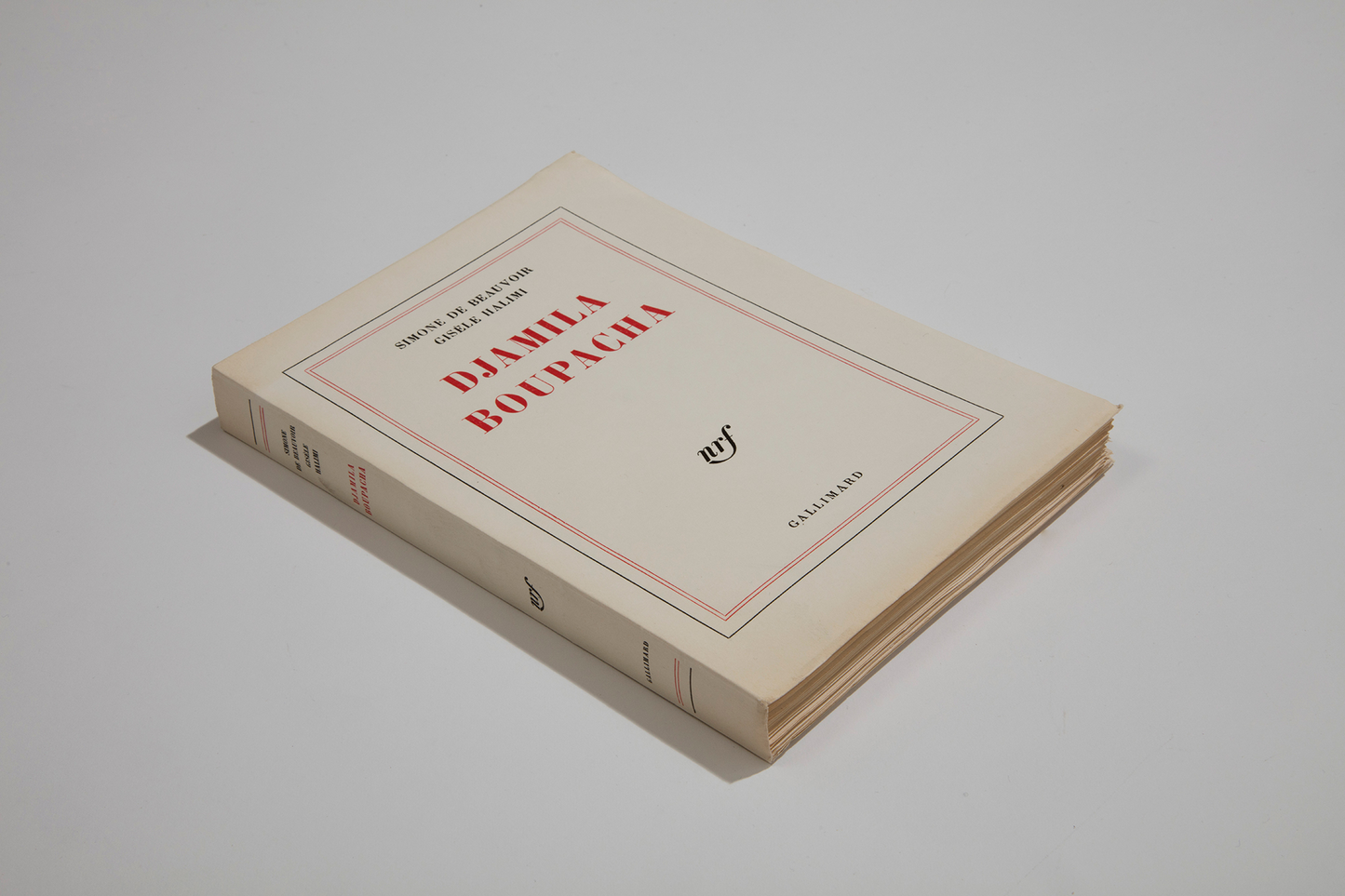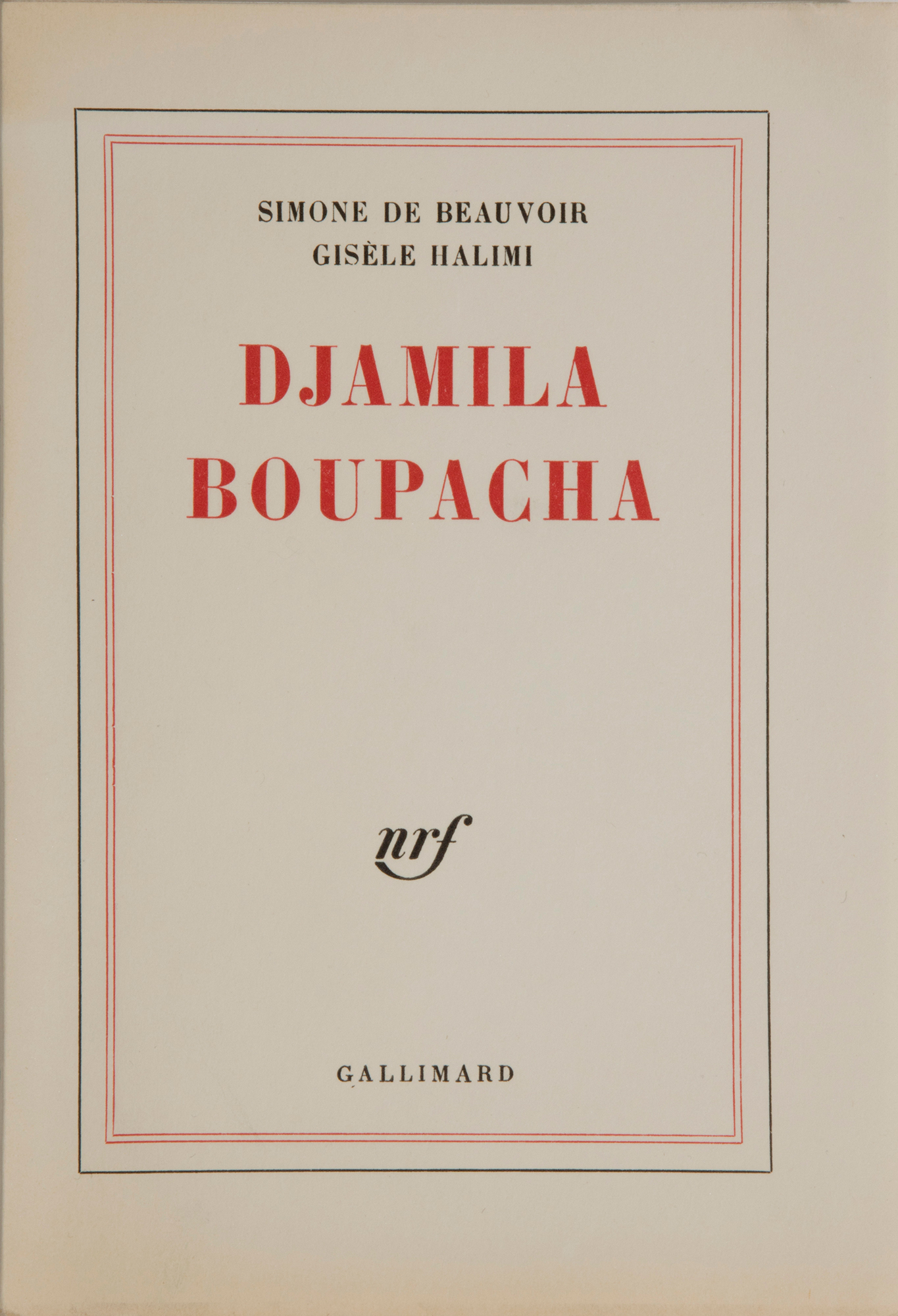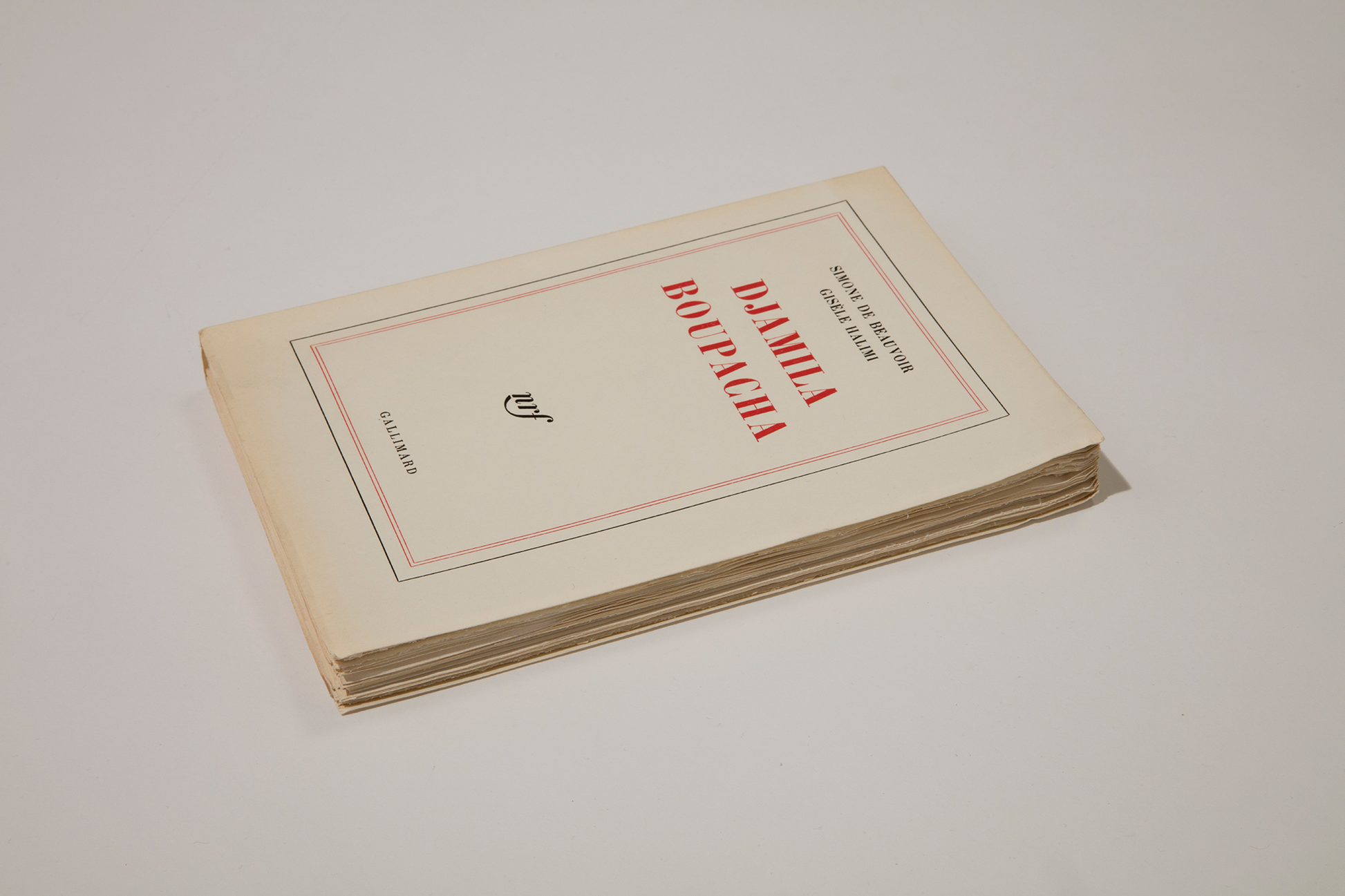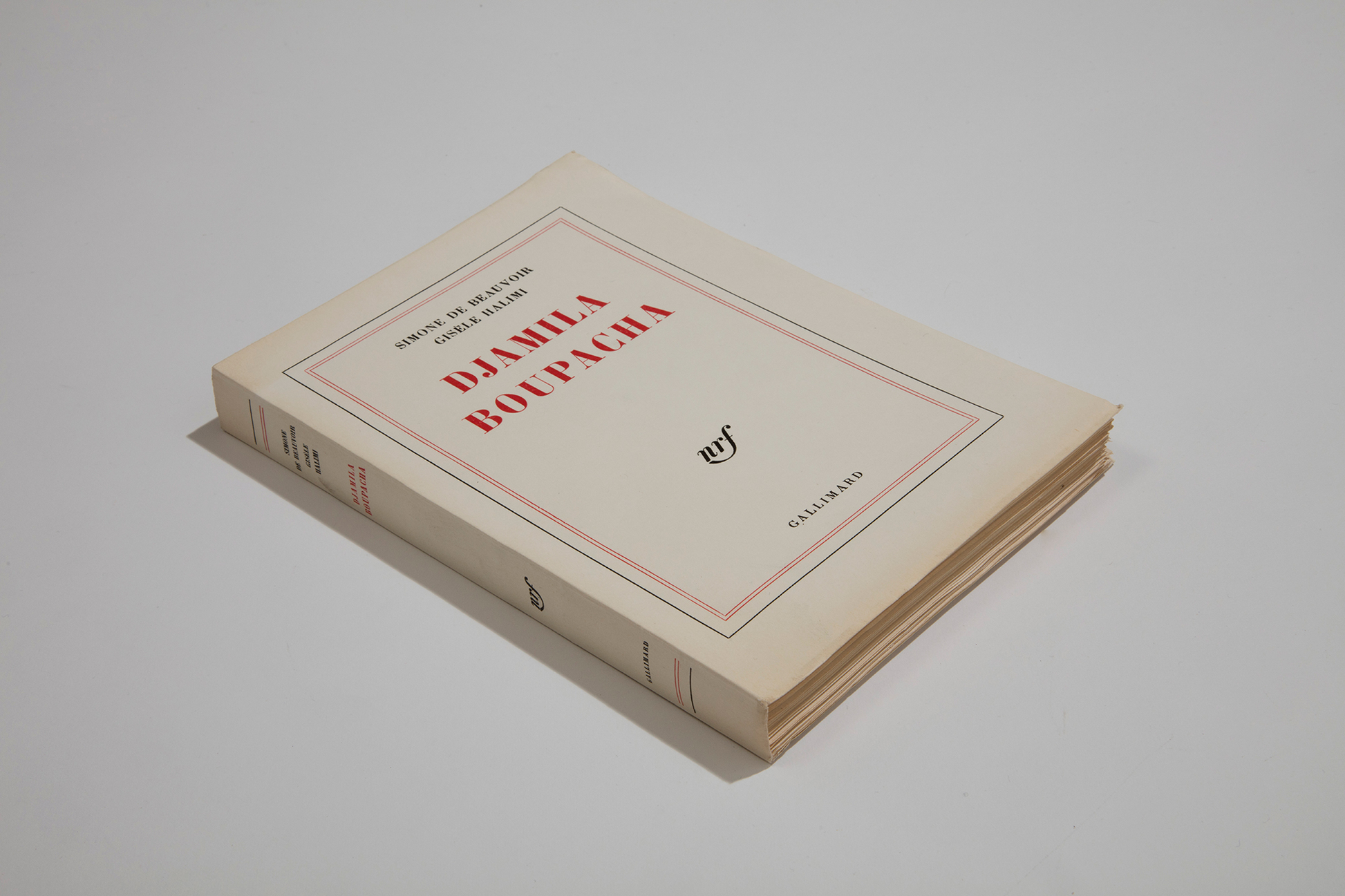Djamila Boupacha
Djamila Boupacha
Couldn't load pickup availability
One of one hundred and twenty-five copies on pure thread vellum, the only large paper.
"A twenty-three-year-old Algerian woman, a liaison agent for the FLN, was sequestered, tortured, raped with a bottle by French soldiers: it's commonplace. Since 1954, we have all been accomplices in a genocide which, under the name of repression, then pacification, has claimed more than a million victims: men, women, old people, children, machine-gunned during sweeps, burned alive in their villages, shot, throats slit, disemboweled, martyred to death; entire tribes left to hunger, cold, beatings, epidemics, in these "regroupment centers" which are in fact extermination camps - also serving as brothels for the elite corps - and where more than five hundred thousand Algerians are currently dying. In recent months, the press, even the most cautious, has poured horror upon us: assassinations, lynchings, beatings, manhunts in the streets of Oran; in Paris, along the Seine, dozens of corpses hung from trees in the Bois de Boulogne; broken hands; split skulls; the red All Saints' Day in Algiers. Can we still be moved by the blood of a young girl? After all, – as Mr. Patin, President of the Safeguarding Commission, subtly insinuated during an interview I attended – Djamila Boupacha is alive: what she suffered was therefore not terrible."
Simone de Beauvoir.
Simone de Beauvoir was born in Paris on January 9, 1908. She studied up to the baccalaureate in the very Catholic Cours Désir. A graduate of philosophy in 1929, she taught in Marseille, Rouen and Paris until 1943. It is L'Invitée (1943) that must be considered her real literary debut. Then came Le sang des autres (1945), Tous les hommes sont mortels (1946), Les Mandarins (Goncourt Prize 1954), Les Belles Images (1966) and La Femme rompue (1968).
Simone de Beauvoir wrote a memoir in which she herself gives us an insight into her life and her work. The extent of the autobiographical undertaking finds its justification, its meaning, in a contradiction essential to the writer: choosing was always impossible for her between the joy of living and the necessity of writing; on the one hand contingent splendor, on the other saving rigor. Making one's own existence the object of one's writing was partly a way out of this dilemma.
In addition to the famous Deuxième sexe (1949), which has become the reference work of the global feminist movement, Simone de Beauvoir's theoretical work includes numerous philosophical and polemical essays.
After Jean-Paul Sartre's death, Simone de Beauvoir published La Cérémonie des adieux (1981) and Lettres au Castor (1983), which collected some of the extensive correspondence she received from him. Until the day of her death, April 14, 1986, she actively collaborated with the magazine founded by Sartre and herself, Les Temps Modernes , and demonstrated her solidarity with feminism in countless and diverse ways.
[ - - - ]
View full details